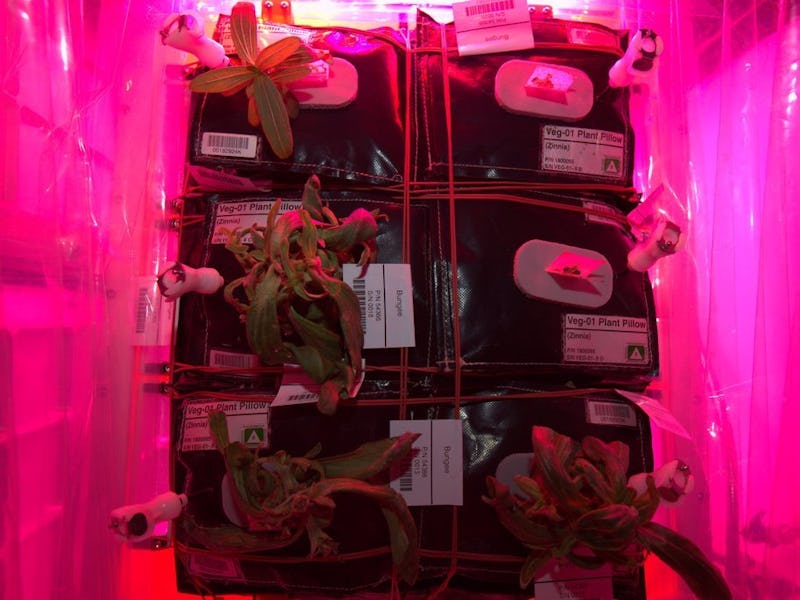NASA's Space Station Plants Are Dying, But Space Gardening Is Coming
Astronaut Scott Kelly should maybe leave the space farming to Mark Watney.

Astronaut Scott Kelly is tasked with plenty during his yearlong mission aboard the International Space Station. He’s got to conduct spacewalks, repair problems on the ISS, disprove conspiracy theories, make a cameo at Yanni’s bizarre Egyptian pyramid concert — on and on. These duties, he has deftly accomplished. But one thing Kelly is not so great at is growing vegetables in space.
This sad tangle of wilted greens are part of NASA’s Veg-01 experiment, designed to train astronauts to grow food in space and become less reliant on resources from Earth — an expensive (and chancy) process. The crops are grown in a small “veggie facility” that provides the seedlings proper amounts of light, water, and nutrients.
Kelly and his fellow astronauts had their first harvest of crops — some species of robust lettuce — back in August. The vegetables tasted great back then.
It’s a different story here. The test crops in question — Profusion zinnias — were being grown in the same growth contraption. Zinnias are flowers that are technically edible, though they are usually grown as decor. Not that it matters — as you can see in the picture above, they’re neither edible nor beautiful.
Turns out, the zinnias are dying not because of any real negligence on the astronauts’ part or because of problems with the veggie facility. As reported by Popular Science, they’re simply reaching the end of their natural 60-day lifespans.
NASA wants to successfully grow zinnias in space as preparation for bringing aboard other flowering plants later on — most notably tomato plants. The goal is to equip astronauts with the tools and expertise to grow their own food and maintain a simple yet diverse diet comparable to what one might enjoy on Earth. The dying zinnias aren’t a great sight, but it looks like the Veg-01 experiment is so far moving in the right direction.
Andy Weir, the author of The Martian, in which the stranded astronaut protagonist must devise a way to grow potatoes on Mars, offered some advice to Kelly: